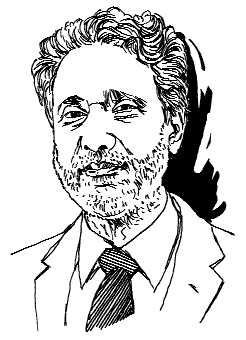
Maninder Singh
Maninder Singh
The former Commissioner of Police, Mumbai, Himanshu Roy, who committed suicide a few days ago, was among the officers who joined the foundation course at the Academy in Mussoorie in 1989. He had been selected for the IPS a year ago and, as IAS was the preferred course of action in those days, taken a year’s sabbatical to sit once more for the exams, in the hope that the UPSC and Dame Fortune might catapult him to a higher rank and a more pacific service.
I wrote about him in this very column a while ago. He was handsome and had shown an interest in the matrimonial sweepstakes in the privileged precincts of the Academy. Thereafter, after training in the National Police Academy at Hyderabad, he had joined the Maharashtra cadre, where he eventually married an IAS officer. How and why the Emperor of Maladies managed to drive this well-regarded officer into a suicidal frame of mind is a story that is never likely to be told in all its fascinating complexity.
No desire to live
Roy’s suicide brought to mind other similar tales of officers taking their own lives. There was Mukesh Pandey, the young District Magistrate of Buxar who, “fed up with life”, travelled all the way to a deadly rendezvous on the railway tracks at Ghaziabad. He left behind a WhatsApp account about how the constant bickering between his mother and his wife, and their irreconcilable differences, had robbed him of all desire to live.
‘The hare will survive’
Shankar Barua, a retired IPS officer from the Assam cadre, shot himself a few years ago. He was a rather likeable man, who was always good company. I remember him telling me, as the DGP of the state with all the panoply of power and authority, that he feared for his own life. Utterly surprised by his statement, and asking in a whisper, from where the danger arose, his answer was shocking and incredulous, “From some of my own officers”. He told all this to me at the State Guest House, with the swollen Brahmaputra flowing by in all its crimson glory, on the north-western horizon, flanked by low hills.
Then he told me a story. He said a Zen Master once showed his disciples a wild hare pursued by jackals and asked them what end the chase would bring. Unhappy with their answers, he is said to have told them, “The hare will survive, because it is running for its life. The jackals are only pursuing their supper.” Barua added, “I am in the position of that wild hare.”
Avinash Singh Chhatwal was an exceedingly popular IAS officer of the Punjab cadre. His name shall forever be a synonym for an amiable and warm-hearted personality. Many years have elapsed since he hung himself at his residence. He was suffering from clinical depression.
Shantanu Kumar, a former DGP of Rajasthan, remembered as “a gentleman to his finger-tips”, committed suicide in 2009. His elder son had also killed himself earlier with his father’s service revolver. Could there be a genetic inheritance, tilting the DNA, for some people to take their own God-given lives. Thereafter, could death itself be described in a similar vein as a God-endowed bloody destiny?
Who is a coward?
Ernest Hemingway’s father, a respected doctor in America’s Mid-west, had blown his brains out in an act which evoked the sharpest criticism from his writer-son. In his autobiographical pieces of writing, cloaked in stories and complex narratives, Hemingway described his father as being a coward and lacking “cojones”---the Spanish word for guts that he had learnt in his days covering the Spanish Civil War.
Many, many years later, the echoes of those shots rang out again when the Noble Prize-winning author put a gun to the temple to destroy his own life. At that defining moment between life and death, would his harsh judgement of his father been tempered by the realisation of what he was about to do. Would he have begun to think of his father as less of a coward and more of a braveheart? Does it actually take ‘cojones’ to pull the trigger on yourself, when the alternative is to live on terms that may be galling to the spirit?
At the climactic battle of Philippi in 42 BC, Brutus and Cassius, the prime conspirators in the assassination of Julius Caesar, commit suicide rather than be paraded as the spoils of war in Rome, tied to the chariot wheels of the victors. It was left to William Shakespeare to put into elegant blank verse the emotions that Brutus may have felt,” Think not, thou noble Roman, That ever Brutus will go bound to Rome. He bears too great a mind…”



























